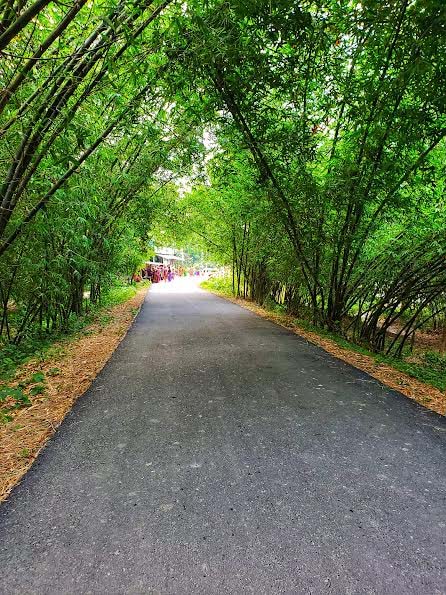
RAJSHAHI, Nov 24, 2024 (BSS)- Construction works of 1,696.66 kilometer more rural roads together with 1.538 kilometer bridges and culverts are progressing fast aimed at socio-economic uplift of the region through overall rural infrastructure development.
Local Government Engineering Department (LGED) has been implementing the project titled "Rajshahi Division Rural Infrastructure Development (Excluding Sirajganj District)".
Specific objectives of the project are to improve rural communication networks to facilitate farm and non-farm economy and to upgrade the life standard of rural people through providing easier and quicker access to basic service delivery centers like schools and hospitals.
KM Zulfikar Ali, additional chief engineer, said they are constructing 172.9 kilometers of upazila roads with 140 meter bridges, 367.76 kilometers of union roads with 636 meter bridges and 1,156 kilometers of village roads, including 762 meter bridges under the five-year project.
The Tk 2,080.40 crore project is being implemented in 58 upazilas in Pabna, Rajshahi, Natore, Naogaon, Chapainawabganj, Bogra and Joypurhat districts.
Ultimate goals of the scheme are to create short-and-long-term employment opportunities in the farm and non-farm sectors together with reducing poverty by involving rural people in various economic and social activities.
"It has also provision of constructing 46 growth centres, 250 meter school connecting roads, 396.83 meter culverts and 33.28 kilometer RCC roads," Engineer Zulfikar said, adding that 327.59 kilometer roads are being widened, while 171.07 kilometer village roads and 240.45 kilometer upazila roads are being repaired.
Moreover, infrastructure developments of different rural markets are being ensured, he also said.
The improved infrastructures will reduce transport cost, develop marketing systems, increase production and marketing facilities of agricultural products, which will contribute a lot to socioeconomic development in the region, he added.
Zulfikar Ali continued that a tree plantation program is being carried out along the roads which will ultimately help reduce carbon emission at a substantial level and that is very important to cope with the adverse impacts of climate change in the vast Barind tract.
The scheme of rural infrastructure development and creation of short and long-term employment opportunities in the farm and non-farm sectors will reduce poverty by involving rural people in various economic and social activities.
Engineer Zulfikar Ali said rural people's accessibility to village market, health centre, educational and other service-delivery institutions will be enhanced upon successful implementation of the project within the near future.
With infrastructure development of the selected area, the rural communication network has been improved facilitating overall socio-economic advancement.
Jahangir Alam, chairman of Godagari upazila Parishad, said the physical bottleneck towards improving rural accessibility coupled with enhancing the sustainability of rural transport and market services has started removing to a greater extent as a result of implementation of the project.
As a whole, the project has been contributing enormously to raising the standard of living and livelihood conditions in the remote villages, he said.
Ataur Rahman, Chairman of Badhair Union Parishad under Tanore Upazila said, "We are very much hopeful about the project that will infuse dynamism into rural socio-economic activities together with bringing a positive change in livelihood of grassroots people.
"Improvement of rural infrastructure is always helpful towards easing and improving living and livelihood conditions of the rural public in general," said Associate Professor Tariqul Islam of the Department of Economics in Rajshahi University.